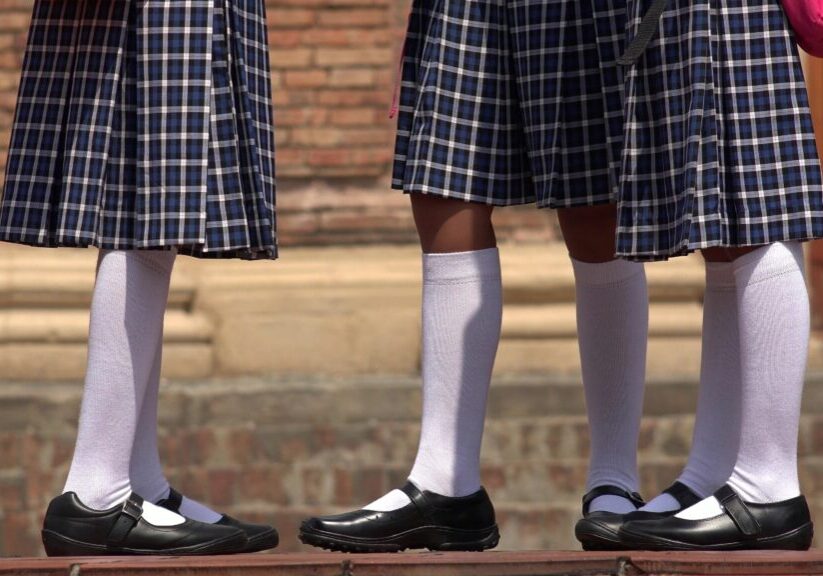Two bills (House Bill 745 and Senate Bill 313) currently moving through the state Legislature would create a new program for “Education Savings Accounts,” or ESAs, in Louisiana. Similar to school vouchers, ESA programs transfer public dollars to private institutions and service providers. These accounts differ from vouchers in that parents are given much more discretion, as public dollars can cover more than private school tuition. Invest in Louisiana’s Jamie Carson and Alison Ocmand push back on this scheme that forces taxpayers to underwrite private school tuition
Two-thirds of students who received a private school voucher through Iowa’s ESA program in 2024 were already in private schools. Indiana, Ohio and Wisconsin all saw similar results with their ESA programs. This school year’s surge in applications for Ohio’s ESA program has been so dramatic that it is nearing the total enrollment for all private schools in the state. … Arizona’s ESA program is projected to cost almost $900 million this school year – nearly 1,400% higher than initially projected – and is significantly contributing to a nearly $1 billion budget deficit in that state. Ohio’s ESA program is also surging past estimates and will cost nearly $1 billion this year.
House Bill 745 is scheduled for debate this morning in the House Appropriations Committee.
The effort to rewrite child labor laws
Nine states have enacted laws to weaken child labor protections since 2022, and at least 16 more (including Louisiana) currently have proposals to do the same. Shockingly, these efforts have come after an increase in child labor violations in recent years. The Washington Post’s Lauren Kaori Gurley explains how a Florida-based conservative advocacy group, backed by billionaires, is leading efforts to weaken child labor laws across the country:
A Florida-based lobbying group, the Foundation for Government Accountability, which has fought to promote conservative interests such as restricting access to anti-poverty programs, drafted or lobbied for recent bills to strip child labor protections in at least six states. Among them is Indiana’s new law repealing all work-hour restrictions for 16- and 17-year-olds, who previously couldn’t work past 10 p.m. or before 6 a.m. on school days. Earlier in March, Indiana enacted the law, which also extends legal work hours for 14- and 15-year-olds.
Reality check: Louisiana is one of the 28 states with a lobbyist for the Opportunity Solutions Project, the lobbying arm of FGA. In Louisiana, the group is pushing bills imposing work requirements on recipients of food assistance.
Failing medical care in state prisons will get worse
Louisiana’s prison system has a long history of providing deplorable health care for inmates. But new laws that restrict parole and gut good time credits will further strain this inadequate system by increasing the number of older inmates in state custody. Verite News’ Richard A. Webster explains how Gov. Jeff Landry’s effort to increase mass incarceration is not accounting for the increased costs of providing more inmates with the constitutional and human right of health care:
The “truth in sentencing” law will nearly double the number of people behind bars in Louisiana in six years, from about 28,000 to about 55,800, according to an estimate by James Austin of the JFA Institute. … Landry’s current budget proposal would increase funding for the Corrections Department by about $53 million, or 7.4%, but it does not project a significant expansion in the incarcerated population, nor would it increase health care funding.
Janice Parker Kentrell describes the horrors she has witnessed when visiting her paralyzed son who is serving time at the state prison in Angola:
The smell of urine and feces permeates the infirmary. Tables and medical equipment are covered in dust and grime, she said. Patients, suffering from open wounds and sores, scream in pain throughout the day. On one visit, she said, clumps of her son’s hair had fallen out and the bare patches of his scalp were covered in scabs. He told her he hadn’t been bathed in weeks. Another time, she found him lying in his own feces, suffering from an infection after bacteria had “entered his blood from his stool,” according to the 2015 lawsuit filed by her son and other inmates, in which Angola’s medical care was ruled unconstitutional.
State officials are seeking to overturn a federal judge’s order for Angola. The move follows a blistering 104-page opinion from U.S. District Judge Shelly Dick last year that said the state showed “callous and wanton disregard” for inmates’ medical care.
Insurance crisis is a climate crisis
Unaffordable rates for homeowners’ insurance could crush the dream of homeownership in many parts of Louisiana. But proposals to solve the state’s insurance crisis are focusing on pro-insurance industry policies that roll back consumer protections instead of addressing the underlying cause of more frequent and extreme weather events. The Louisiana Illuminator’s Carolyn Kousky explains how the only long-term solution to this climate-driven problem is to lower our risk:
First, we need to build stronger, including implementing and continuing to improve upon the updated 2021 building codes and increasing the number of homes built to the Fortified building standard. … Insurance markets are currently warning us that communities are becoming uninsurable. Instead of debating measures that weaken consumer protections, let’s focus efforts on creating insurable communities that can thrive in the face of escalating risk. Making residents safer as the planet warms is the long-term path to stabilizing property insurance.
Number of the Day
$980.4 million – State spending on private school scholarships in Ohio as of March 18. This amount is expected to increase, as the state will continue to accept voucher applications until the end of June. (Source: cleveland.com)
